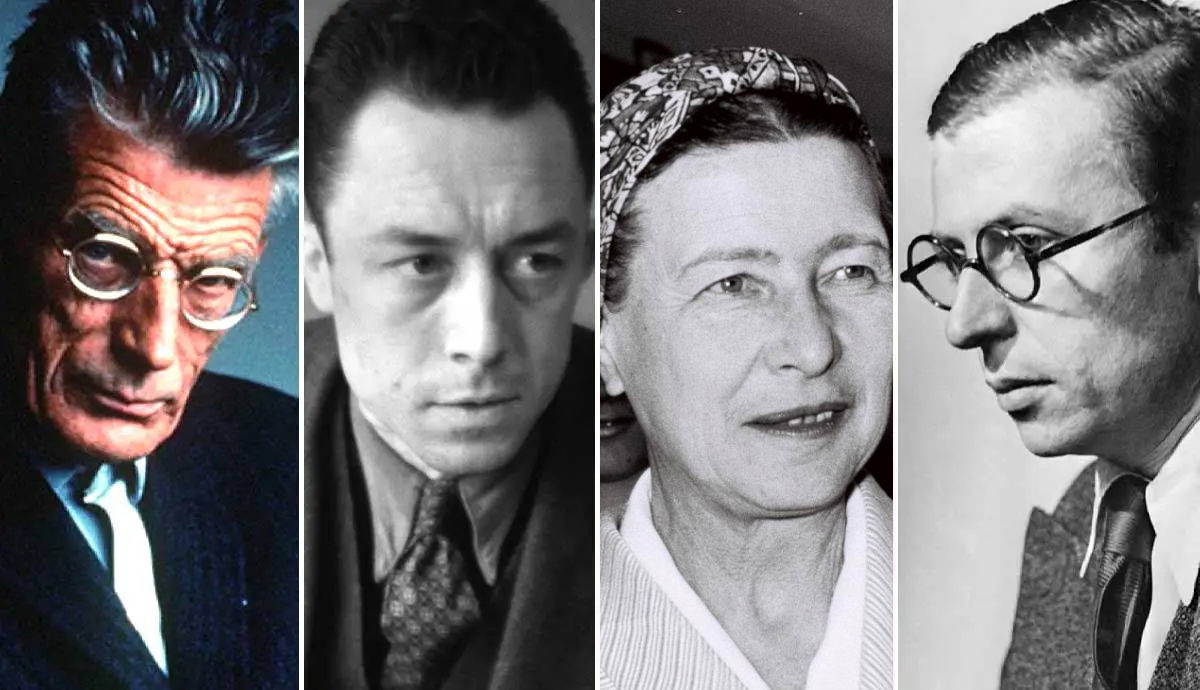Existentialism was a literary and philosophical movement in Europe that emerged in the early to mid-20th century. Existentialists argued that humans are the architects of their own future. They are therefore completely free to determine the course of their own lives, for better or worse. Moreover, they believed there was no god, no fate and no destiny at play. Both liberating and terrifying, this school of thought opened up new ways of thinking about our relationship to the world around us. We examine some of the most prominent and prolific Existentialists who scorched a path for countless others to follow.
1. Jean-Paul Sartre
French philosopher, screenwriter, playwright, novelist and literary critic Jean-Paul Sartre was the eminent voice of Existentialism. His standout contributions to the field of Existentialism include the philosophical treatise Being and Nothingness, 1943. He later adapted this same essay into a sell-out lecture delivered in Paris titled Existentialism is a Humanism. His most important literary works include the novels Nausea, 1938, and The Roads to Freedom Trilogy, 1945–49. Among his most popular plays are Flies, 1947, and Dirty Hands, 1948. Throughout this long and prolific career, Sartre explored what it means to be human, and he questioned how the structures of our consciousness inform how we can direct the path of our own lives.
2. Albert Camus
Algerian-born French philosopher, novelist, playwright and journalist Albert Camus was one of the Existentialist school’s leading lights. As an Algerian living in Paris, he wrote from the perspective of an outsider or interloper looking on as if from a distance. The characters in his stories reflect the concept of Existential dread. They struggle to find their purpose and belonging in an increasingly complex and dangerous world. Camus is also closely associated with the literary style of Absurdism, which focused on one’s feelings of separation from the world around us.
Get the latest articles delivered to your inbox
Sign up to our Free Weekly NewsletterThis sense of alienation plays out in his most famous literary works L’Etranger (The Stranger), 1942, and La Peste (The Plague), 1947. In Camus’s philosophical essay The Myth of Sisyphus, 1942, he described the mythological character of Sisyphus as the ideal absurd hero. Camus argues that this anti-hero’s life of perpetual struggle without hope or end epitomizes the grim reality of human existence.
3. Simone de Beauvoir
Simone de Beauvoir was a pioneering French Existentialist who produced a vast body of work. This includes literature, philosophy and social theory. She was also an iconic feminist who fought tirelessly for women’s rights. Her most celebrated text was the philosophical essay titled Le Deuxième Sexe (The Second Sex), 1942. In it she argued vehemently for the abolition of the female ideal, which she saw as designed exclusively for the benefit of men. By contrast, in her novels she explored core Existentialist themes around human consciousness and the quest for self-fulfillment. We see these themes at play in L’Invitée (She Came To Stay), 1943, and Les Mandarins (The Mandarins), 1954.
4. Samuel Beckett
The Irish, French-based writer Samuel Barclay Beckett was a giant in the field of European 20th-century literature, producing novels, short stories, poetry and translations, although he is probably best-known as an influential playwright. Beckett took a somewhat pessimistic approach to the school of Existentialism. He did this by arguing that life has no meaning, while our human desire is to try and attach meaning to everything.
Beckett’s stories often present a bleak outlook on life in post-war Europe. His characters struggle to find their purpose, and instead drift aimlessly around doing nothing. He also explores elements of satire and black humor. His novels include Murphy, 1928, Dream of Fair to Middling Women, 1932, How It is, 1961 and The Lost One, 1970. Among his many successful plays are the timeless Waiting for Godot, 1949, as well as Endgame, 1957, Krapp’s Last Tape, 1958 and Happy Days, 1961.
